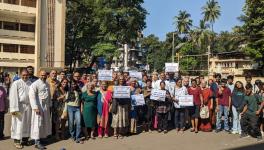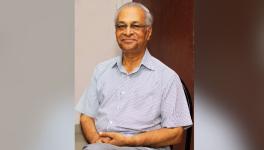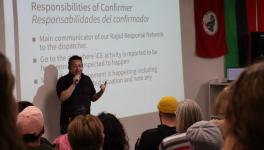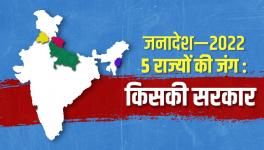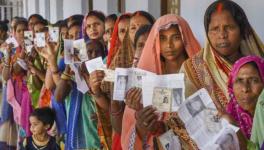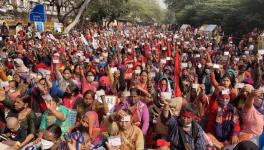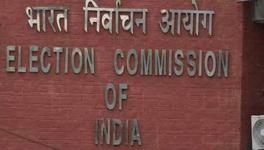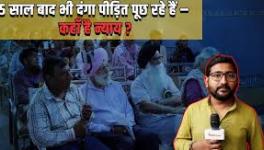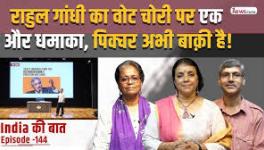My Friend Aurora
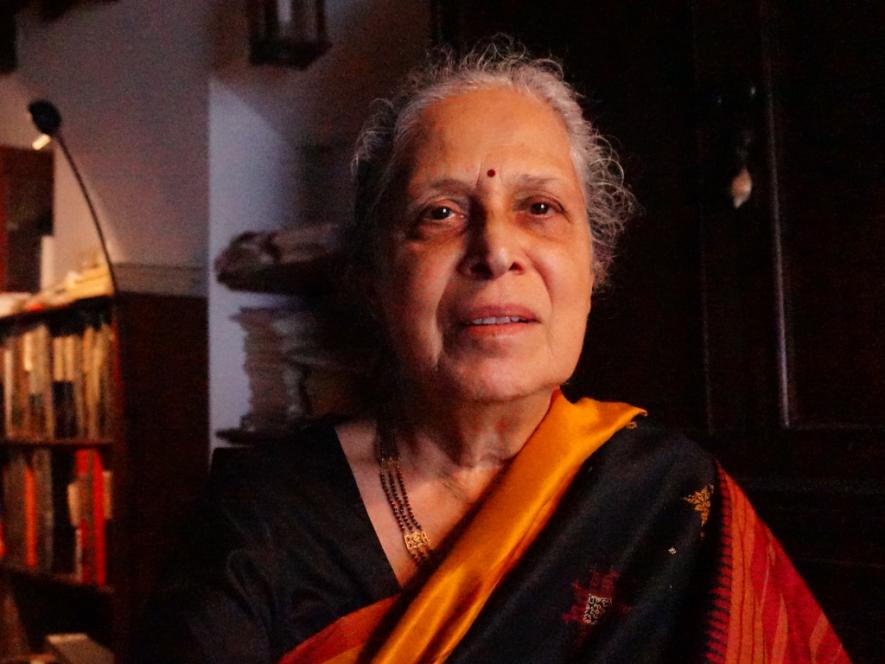
When I got to the Virago office in London for the launch of my novel That Long Silence, more than one of the friendly staff told me, “Your friend, Maria Couto, has been ringing up.”
My friend Maria Couto? I knew no one called Maria Couto.
And then she appeared, a tall, elegant lady whom I would not have recognized but for the smile. A smile that radiated happiness at seeing me. Aurora! Yes, she was a friend, an old friend from my Dharwad days. Aurora Figueiredo. We had been at school together, first St. Joseph’s, then Basel Mission, and then in college for two years until I left Dharwad. Dharwad was a small town, everyone knew everyone. Besides, her house in the early years had been only a short walking distance from ours. But to meet her in London? It was a staggering surprise. It was January and very cold. And I, inadequately clad for winter. But when she came and hugged me, her hug and smile warmed me so that winter seemed to have receded.
Also read | Keeping count of dissenting voices
“Did you ever imagine,” she wrote to me later, when we were in regular correspondence, “when we were in St. Joseph’s, that we would meet like this? I mean, as writers, and carry on a conversation in our ripe old age?”
Indeed, who would have imagined it? We had had different sets of friends both in school and college. And she was, even as a very young girl, dignified, whereas I had been a rather unruly excitable girl. Now, in our second innings, we were meeting on level ground. We had lost touch for some decades, a chunk of time after marriage and children when women always lose friends. When we met, I knew she was a different person. Elegant – the word used by so many people for her. An elegance that didn’t come out of the clothes she wore, but out of a poise, both within her and in her behavior. But what impressed me even more than her elegance was that she reviewed my novel for The Guardian, that she had been asked by The Guardian to do a review. And the review itself — of all the reviews that appeared in the English papers, hers very clearly understood the novel the best. I realised that she had grown. While I was only just venturing out into the world with this novel, she had done her Masters, her doctorate, she knew Salman Rushdie, (though she rarely spoke of it) she played hostess to writers like AK Ramanujan and Girish Karnad in London. But none of these things had any place in our relationship. We were both readers, we were both writers (she had written a book on Graham Greene) and we were both from Dharwad! We never lost touch after that. Alban, her husband, and she came back home, we met in Chennai, and when they went back to Goa, we met more often because Goa was our favourite holiday destination.
“Courage, honesty, wealth of knowledge, breadth of interests” – this was how she spoke of my memoir Listen to Me. Words written by my friend Aurora, words she meant. Words which could apply to her and her writing as well.
Dharwad, though a small town, was an educational centre and a large number of students from Goa came to study in Karnatak College; education in Goa was in Portuguese. Every Catholic family in town had at least one boarder from Goa staying with them. However, Aurora’s entire family had moved from Goa to Dharwad for the children’s education. She did not mix very much with others in those early years, she had a quiet dignity even as a child. But as she grew up, she found herself a number of good friends – and this, not just from the Catholic community, but from all other communities. “My Dharwad life,” she wrote to me once, “opened me up and made me comfortable with people from various communities and backgrounds.”
It was more than Dharwad; she had a gift for friendship. The friends she made in college were friends for life. One of the girls who had been my friend before I left Dharwad had become a very good friend of Aurora’s. Her daughters were in Bangalore and we lunched together when Aurora was in town. She was Aurora mavshi to the young women. She was animated and radiant that day, talking about old days, of Dharwad and of old times. I remember how, during one of our chats on email, we went back to an old story, gossip really, and we laughed at the story and then at ourselves, two old ladies giggling over old stories. If Dharwad shaped her, it was going back to Goa, back to her roots, which inspired her to write. She wrote Goa: A Daughter’s Story which I think is a magnificent tribute to Goa. She agonised over whether to write, or rather how to write about the forced conversions. She wrote to me about her dilemma, she consulted Girish (Karnad), a college friend. But ultimately the decision must have been hers. She could not write about Goa, without including this dark chapter in Goa’s history. It was a fact, it could not be ignored. And it is one of the best chapters in the book.
Our books, it seemed, gave us opportunities to meet… It was as if we were sharing our writing life.
My view of her changed totally when I read the book. It was scholarly, very well-researched, emotional and beautifully written. It also spoke of a great love for Goa, sorrow for what was happening to it, the way the idea of Goa that Goan people carried within them was being corrupted by politicians and commercial interests. People think, she said to me once, that Goa is only a place to go to drink and have fun. I remembered then, how once, when we had stayed in a small place in Dona Paula, which had a beautiful secluded beach, a noisy party went on one night. When we woke up in the morning, we found that there was broken glass all over the place, remnants of the night’s revelry. There were sharp dangerous pieces of glass in the sand, which the staff picked up painfully slowly and carefully. This, I thought, was what Aurora was saying in her book: Holiday-makers didn’t know or care about the fact that Goa is a place where people have lived a certain way of life for centuries, a life that has to be respected. This way of life meant a coming together of all the communities. I saw it myself in Goa, how everyone spoke in Konkani, whether you were a Hindu or a Catholic. Language united people, religion never divided them. Now politicians were dividing them. For her book, Aurora had interviewed an amazing number of people, people of all communities, of all languages. To her they were all Goans, sons and daughters of Goa, they belonged together, with a distinctive culture of their own. She often spoke to me of Konkani literature, of Bakibab Borkar, their great writer and poet. I hope she was well enough to know that Damodar Mauzo, a Konkani writer, got the Jnanpith this year. She would have been both pleased and proud.
She had a launch of her book Goa: A Daughter’s Story in Bangalore. Both Girish and I were there on the occasion, he to launch the book and speak, and I to speak about it. She sent me a picture taken on the occasion, of the three of us, Girish and I talking animatedly (arguing?) while Aurora sat between us, her face serene, a small smile on her face. Being between two Dharwad contemporaries had brought out the smile, perhaps. After this, she wrote another book, Filomena’s Journeys, a wonderful book, written with honesty and sensitivity, a very personal one about her mother and her father. We had never seen her mother when we were in Dharwad. I understood why, I realised her mother’s struggle when I read the book. For many reasons, she confessed that this was a book hard for her to write. She wrote to me how disturbed she was at times during the writing of it, unable to go on after having written about a particular episode. After reading the book, I understood the reason for her reserve when she was a child. That she had been a grave serious girl was not only because, as the eldest child, she had responsibilities few children have at that age. She found solace in one friend and in Father Soares, Principal of St. Joseph’s whom Aurora admired greatly. But she never spoke of the problem she had at home. Once, however, she wrote to me that friendships sustained her, they allowed her to escape from the reality of family life. Yes, the friendships she made as a girl and young woman stayed with her all her life. Girish Karnad, who had been in college with her, remained a life-long friend. She consulted him about her own writing, she wrote to me often about his writing. She was both pleased and embarrassed at the space he gave her in his own autobiography.
We often shared our fears, our grief for what was happening to our country. “This is a trial of endurance for us all,” she wrote to me. “But memories of better times should sustain us.” We needed, we need that optimism.
Our books, it seemed, gave us opportunities to meet. I had been with her for the launch of Goa: A Daughter’s Story in Bangalore, she had launched my Small Remedies in Chennai. Now, I was in Goa for the launch of Filomena’s Journeys. It was as if we were sharing our writing life. That launch was a wonderful occasion. The event and the response Aurora got on that occasion told me that my friend Aurora, a gracious and dignified lady, Mariabai to many there, commanded much love and respect from the people she lived among. One of Aurora’s many protégés, said to me, “Did you notice the crowd? Everyone was there, Christians as well as Hindus. The Konkani crowd, the English crowd, the Marathi crowd. It doesn’t always happen this way nowadays.” This fissure in a place where there had been none troubled Aurora greatly. This was something both of us felt deeply about. We spoke of it often, wondered whether the situation would ever get better. Both of us had come to the age of understanding during the Nehru years. We had imbibed that wonderful vision of India he, and Gandhiji before him, had held out to us. An India with many differences, but living together with tolerance and understanding. “Unity in Diversity” was not just an empty slogan, it meant a way of living in this country. Was this vision to be sacrificed now to a different ideology? We often shared our fears, our grief for what was happening to our country. “This is a trial of endurance for us all,” she wrote to me. “But memories of better times should sustain us.” We needed, we need that optimism.
Also read | Press note from Goa Writers
Alban and she had come to Goa to live a quiet life in the place they had started from. Everyone who visited them spoke of their beautiful house, of the amazing garden. It was not just a beautiful house and garden, it was a wonderful and beautiful home. Even after Alban left her, she continued to keep the house the way it was. I remember a lunch in her home, when four friends — a publisher, two translators and I, a writer — were having a holiday in Goa. She invited us for lunch. It was an unforgettable occasion: the beautiful surroundings, the food, the conversation about books and music and politics. Alban, an affable host, talking music with one of the guests. And Aurora, the watchful hostess, making sure that everything was done right, that everyone was being served well. These things don’t happen often. And Aurora could make it possible for them to happen.
When Vivek Menezes (another person with Dharwad connections, by the way) asked me on behalf of the Goa Literary Festival whether I would like to have a conversation with Aurora about my memoir Listen to Me which had just come out, I was delighted. Who better than Aurora who knew me and my writing so well? Her first question, or rather comment, was about the tamarind trees-lined roads on which we walked to school. What a lovely beginning, I thought, instead of a serious literary question. She knew, and I knew, that it was there, in the town in which trees flourished, where the champa spread its fragrance in most front yards, that our writing journeys began.
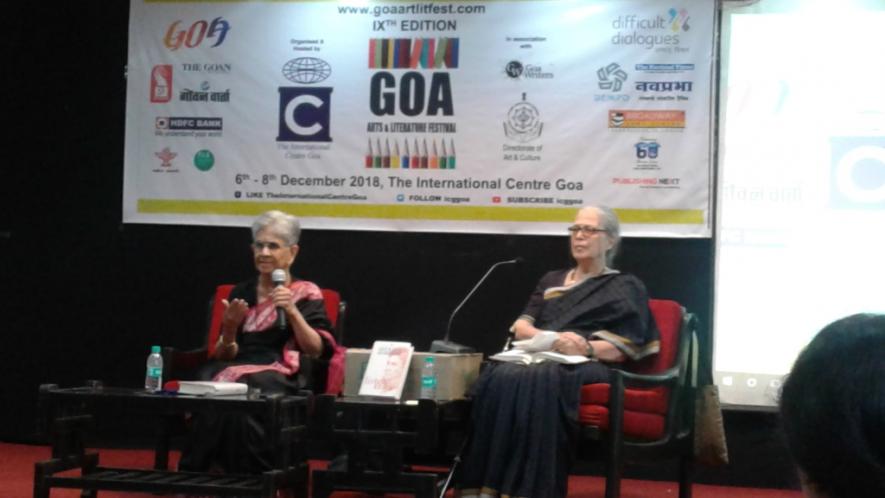
Shashi Deshpande (left) in conversation with Maria Aurora Couto at GALF, 2018
I met her in January 2020, I think. She looked frail. She had had a fall and a botched surgery had left her with a foot drop. But she did not complain. The only thing that troubled her, she said, was the daily journey to Panaji for physiotherapy, which left her exhausted and incapable of doing anything the rest of the day.
Since her death I have had letters from her students in Lady Shri Ram college where she had taught. Letters speaking of what a wonderful teacher she was, and how inspiring she was. I can’t think of a better tribute. When I told her about some essays of mine I was putting together, she told me she too had some essays which she wanted to revisit. But it was getting hard to find the energy. Yet she did write an essay on Graham Greene which came out in Scroll, soon after mine on Jane Austen had appeared in the same place. We were still moving on together, still in step. Now she has dropped out.
“Courage, honesty, wealth of knowledge, breadth of interests” – this was how she spoke of my memoir Listen to Me. Words written by my friend Aurora, words she meant. Words which could apply to her and her writing as well.
Get the latest reports & analysis with people's perspective on Protests, movements & deep analytical videos, discussions of the current affairs in your Telegram app. Subscribe to NewsClick's Telegram channel & get Real-Time updates on stories, as they get published on our website.









